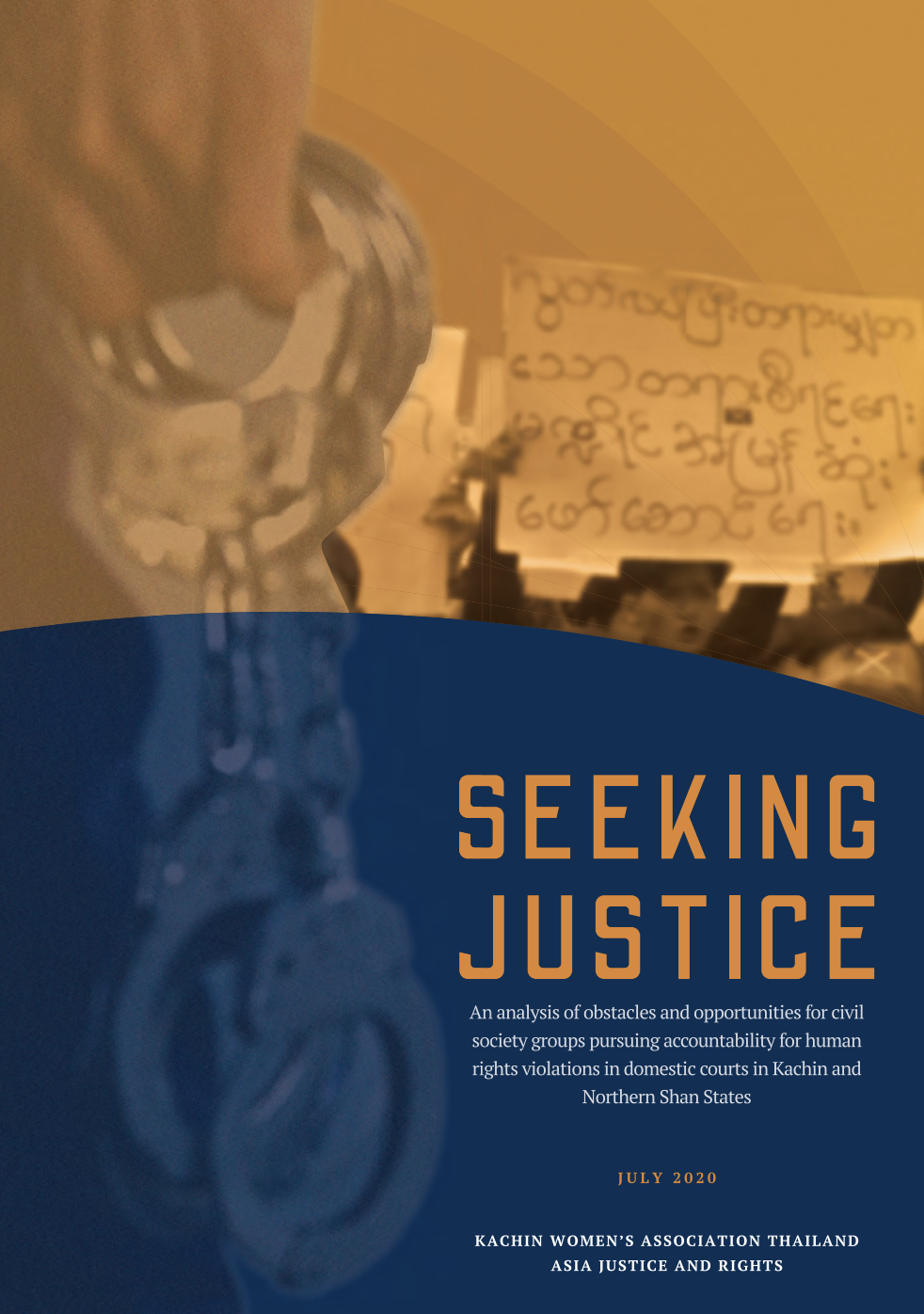At the International Court of Justice on 11 December 2019, Daw Aung San Suu Kyi claimed that the Burma military justice system is willing and able to prosecute possible war crimes committed by its soldiers. Decades of human rights violations and impunity show the hypocrisy of this statement. The failure of domestic mechanisms to provide justice to victims has opened the way for the International Criminal Court (ICC) and the International Court of Justice (ICJ) to address some of the human rights violations committed by the Burma military.
In addition to those efforts at the international level, it is crucial to maintain pressure on the Burma government and military to fulfil their duty, as components of the State, to protect the rights of all people in Burma. This duty includes the obligation to investigate, prosecute, and punish human rights violations. Our research focused on the role that local civil society groups and community-based organizations can play in improving chances for justice. The analysis focused on cases of human rights violations against 51 civilians committed by Burma security forces, in particular the military, between 2011 and 2019 in Kachin and Northern Shan States.
This report is for local civil society groups and community-based organizations in Burma who are looking for strategies to assist victims of human rights violations to access justice. Our research gave us a detailed understanding of the formidable challenges and obstacles met by civil society groups trying to bring perpetrators to justice. It also provided a small window into possible opportunities for justice based on a handful of relatively “successful” cases.
